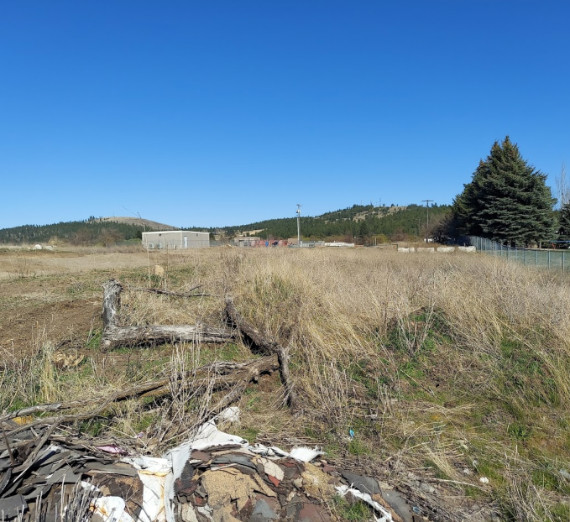Professors Win Grant for Neighborhood Project

SPOKANE, Wash. – Two Gonzaga University professors have received a grant to develop a digital platform that will allow neighborhoods in northeast Spokane impacted by the construction of the North Spokane Corridor to celebrate their histories.
The construction of the highway linking I-90 to U.S. 395 includes a bike-pedestrian route, The Children of the Sun Trail, that will parallel the highway and include bridges and underpasses to allow residents to navigate the highway and railroad that fragments their neighborhoods.
The $29,329 National Endowment for the Humanities (NEH) grant, titled “Finding Our Way: Fostering a Sense of Place for Underrepresented Communities,” will be used to hold community workshops and forums, conduct research and explore designs for a digital platform that seeks to bring together diverse community narratives.
“This grant funds the first phase of what we hope will be a multiyear undertaking that centers public and digital humanities engagement within our local community,” said Katey Roden, English professor and director of the Digital Humanities Initiative at Gonzaga.
Roden applied for the competitive grant along with GU’s Greg Gordon, chair and professor of environmental studies.
The NEH grant is a continuation of the extensive public engagement process initiated by the Washington Department of Transportation and Eastern Washington University, whose previous studies showed that residents want to include place-making elements in the trail design, making their community histories and stories accessible. This grant is the next step in that process.
In addition to telling the stories of marginalized communities in Spokane, “Finding Our Way” will work with the Spokane Tribe, whose members have been displaced from their traditional homeland. This first phase of the project will focus on ethnobotanical plantings along the trail and the tribe’s stories about the importance native plants have had, and continue to have, in their culture and community.
The genesis for Gonzaga’s involvement with the Children of the Sun Trail dates to 2019 when Wendy Thompson, GU’s director of tribal relations, began working with the Environmental Studies capstone course.
“We’re now on our third cohort of seniors who have been working with Wendy and the Spokane Tribe in developing an ethnobotanical narrative,” Gordon said. “It’s been an incredible opportunity for students to gain an understanding of Traditional Ecological Knowledge.”
Roden summed up the purpose of pursuing the grant.
“For me, the heart of the project is exploring what it means to live in a place and really take stock of its past and present, while also imagining possible futures,” she said. “I’m interested in how community-engaged public humanities projects can help us tell the story of this place we all call home without privileging one group over another.
“People think of Spokane as not very diverse. This is a project that can show the incredible cultural, ethnic and historical diversity of Spokane.”
